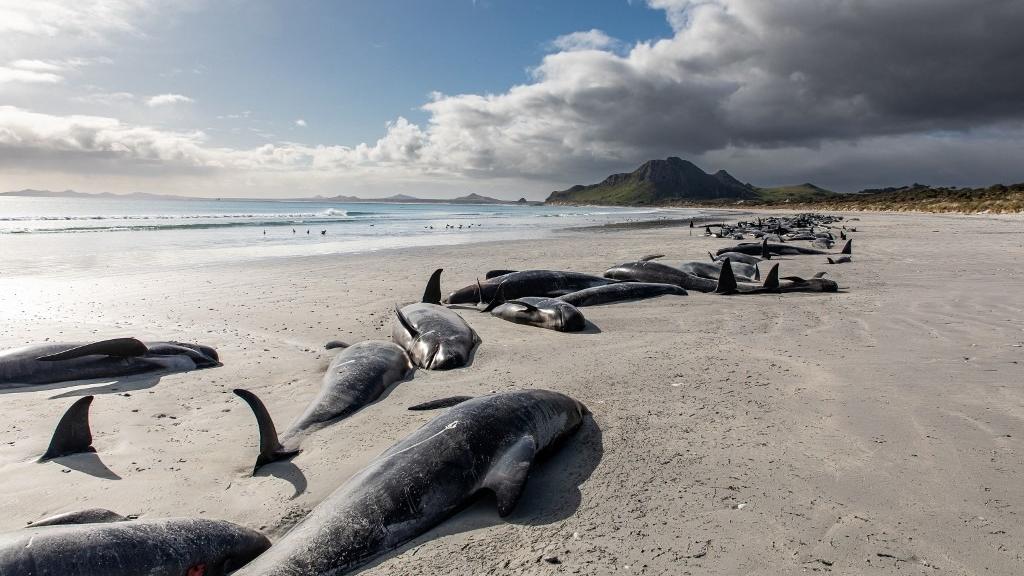 This handout photograph taken on Oct 8, 2022 and received on Oct 12 courtesy of Tamzin Henderson shows the carcasses of stranded pilot whales, some of hundreds that were found beached, on the west coast of New Zealand's remote Chatham Islands. (PHOTO / AFP)
This handout photograph taken on Oct 8, 2022 and received on Oct 12 courtesy of Tamzin Henderson shows the carcasses of stranded pilot whales, some of hundreds that were found beached, on the west coast of New Zealand's remote Chatham Islands. (PHOTO / AFP)
WELLINGTON - Marine heatwaves have become longer, stronger, and more frequent across coastal New Zealand since 1982, especially over the last 10 years, according to a research on Monday.
Different regions experienced more marine heatwaves in different seasons, with the greatest increases observed in the Chatham islands in winter, central New Zealand in autumn, northeastern New Zealand in summer and autumn, and Bounty and Antipodes Islands in spring, according to the research published on the New Zealand Journal of Marine and Freshwater Research.
Marine heatwaves can have severe impacts on near-shore ecosystems, according to the research paper
ALSO READ: New Zealand's southern waters experiencing marine heatwave
Marine heatwaves can have severe impacts on near-shore ecosystems, according to the research paper. It called for better monitoring of these habitats
"Marine heatwaves have increased worldwide in intensity, frequency, and duration, often with severe impacts on ecologically and socio-economically important coastal habitats," according to the research authors from the University of Canterbury and the National Institute of Water and Atmospheric Research.
READ MORE: Aussie weather forecaster puts chance of El Nino in 2023 at 70%
The study addressed the research gap by analyzing changes to marine heatwaves across seasons and ecoregions within 12 nautical miles of New Zealand's coastline, an area with high biodiversity and endemism


